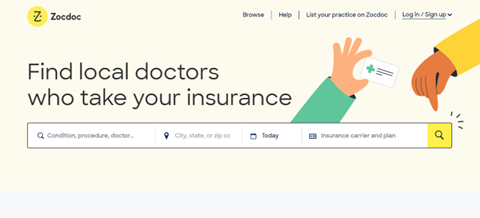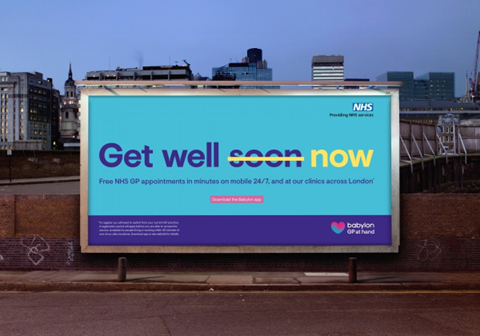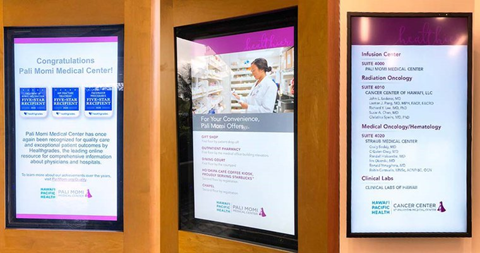- Home
- Learn
- Healthcare
- 12 Ways to Generate Healthcare Leads: A Complete Guide for the United States
HEALTHCARE
12 Ways to Generate Healthcare Leads: A Complete Guide for the United States
Contents
Lead generation strategies are essential for any business to thrive. While healthcare deals directly with people’s lives, it’s still a business like any other.
Getting individuals interested in your services and persuading them to keep in touch is the goal of lead generation. But to do that, you first need to offer a variety of ways for potential patients to get in touch with you.
Acquiring new customers is tough! Even with the right strategies in place, many potential patients might ignore your practice and go to a rival. Our time-tested patient lead generation techniques will ensure that you don’t miss out on potential clients and income.
Although maintaining relationships with current patients is vital, bringing in new ones is what keeps the practice alive. Seeking out new patients is an integral part of any medical practice.
But how do healthcare businesses determine the best patient lead generation source and manage the ones from several co-existing sources?
Well, this guide explores the different lead generation methods to help you identify what works best for healthcare providers.
Your hospital, practice, and company’s website say a lot about you, especially in terms of expertise. Keep in mind that every online lead-generation tactic you employ will eventually bring visitors back to your website.
There, visitors will figure out how to get in touch with you for further details and decide whether or not they can trust you. To determine if your website is in good form to create healthcare leads, ask yourself the following questions:
- Is it easy for search engines to find your website?
- Is it simple to use?
- Are your contact details visible on every page?
- Is the loading time quick?
- Does it offer visitors relevant information?
You might want to revisit and revamp your website if you don’t have a definite answer to any of the questions above. Ensure that your website is well-designed and maintained so that customers, patients, and potential business partners in the healthcare industry have confidence in your company and what you offer.
Effective search engine optimization (SEO) is crucial for the generation of healthcare leads. This is how search engines can contextualize, index, and show your website. Ensure that your website optimizes:
Several factors require optimization, but the three above are a solid place to start when driving lead generation for the healthcare industry. Additionally, since those leads may turn into patients, optimize your website for the keywords that will bring in quality traffic.
These keywords can change periodically, so carry out intensive keyword research to stay on top of the search engine. Making your website SEO-friendly is among the most cost-effective methods to generate new leads.
You can use SEO Tools such as Semrush, Ahrefs, and the Google Keyword planner to optimize your website.
Webinars may seem like a strange tool to use for lead generation. Most marketers may view it as a lead-nurturing process rather than one that drives lead generation. But webinars are immensely powerful in building awareness and educating viewers.
Healthcare providers can massively benefit from creating webinars targeting specific consumers or illnesses. These are some of the benefits your facility can attain through the creation and dissemination of a webinar:
You can have multiple reasons for creating and sharing a webinar with viewers worldwide. But if your primary objective is to generate leads, ensure you include actions viewers can take that ultimately starts their patient journey within your healthcare facility, such as specific tests or vaccinations.
But keep in mind that prior planning and ample time are necessary to prepare for a webinar. It is advisable to hold a brainstorming session in advance to create the webinar’s agenda and goals.
To maximize the growth of your audience after the event, you must develop a post-webinar strategy. Provide compelling content with vital information to drive traffic to your business. Which can easily include email campaigns or various touchpoints as a part of your automated marketing strategy. This brings us to the next point, email marketing.
Email is, without a doubt, one of the most effective marketing tools when it comes to increasing patient engagement and revenue. In fact, research studies indicate that one of the best methods for bringing in new patients is email marketing.
It’s not surprising that more healthcare providers are using email marketing to contact patients given its many advantages, such as increased engagement, cost-effectiveness, and reach.
Moreover, due to the fact that your patients’ email inboxes are their private online spaces, communicating with them there gives you the focused attention you cannot receive on social media.
So how do you use email marketing to drive lead generation?
Email marketing takes time, despite how simple it may seem. Effective email automation will offer optimum lead generation channels, freeing you up to concentrate on caring for your patients and establishing your clinic.
Using social media for your lead generation is a no-brainer. Every industry has a lot to gain from the expansion of its social media following. Healthcare facilities, in particular, can become more accessible and engaging when they establish an active social media presence.
Presently, almost all brands and businesses recognize the value of having an online presence. Research shows that social media is in use by almost 70% of American healthcare companies. Social media platforms for the healthcare industry might turn your little clinic into a booming business or make your hospital the top choice in your area.
Creating your clinic’s profile is the first step to establishing your presence online. Lead generation largely differs from one platform to another. Instagram thrives with visual and film content and can help you reach a massive audience.
In comparison, Twitter depends on your ability to write and create compelling content. Facebook is a goldmine for accessing the older generation and generally shows the highest ROI among these platforms.
So, what are some steps you need to follow across all social media platforms?
Social media has the potential to generate leads effectively by increasing website traffic and conversion rates. Using social media in the medical sector will also ensure that people receive accurate information from reliable sources. Additionally, it will increase public awareness while enhancing the credibility of healthcare practitioners.
You must enhance your healthcare lead generation strategies for the internet as more consumers rely on the web for medical information. Digital marketing trends have a much wider reach than traditional brick-and-mortar strategies.
A strong healthcare content marketing plan may help you continually connect with your target audience and convert those conversations into lucrative leads.
Although other businesses have embraced content marketing as a standard procedure, many healthcare professionals find it difficult to do so in a way that is both helpful and empathetic.
The healthcare industry is a challenging subject to write about because of the scientific terminology, perplexing procedures, and extensive list of confusing measures. So how do we create and market content in a way that is easy to read and informative?
You are passing up an opportunity to truly engage your audience if content creation is not a part of your marketing strategy. Your client communication and lead generation initiatives can thrive with excellent content, which can also build credibility and increase trust with your audience.
(Important Note: Ensure you plan, schedule, and follow a content calendar. Sporadic content uploads will rarely help you gain the trust of any blog follower.)
As we’ve mentioned above, 35% of adults search for medical symptoms or try to get a diagnosis online. While this isn’t the best practice and can lead to a faulty diagnosis on the lead’s part, health information websites are a treasure trove of high-quality leads.
Paid display marketing is the quickest path to improving your bottom line out of the several elements that make up a strong digital marketing plan.
Paid search places your business at the top of Google’s search results, whereas display advertisements are a little more passive but have a much bigger impact on brand recognition.
Display ads are those that appear either off to the side or at the top of a webpage (banner ads). The majority of the time, you see the advertisement because it is connected to the page’s content or due to your previous searches.
For example, someone may view your image or video ads when looking up symptoms on WebMD or while watching a YouTube video about their condition. Some highly ranked health information websites are:
When you’re trying to get your display ads on healthcare information websites, don’t forget about the sites that offer in-depth information about medications and patient prescriptions.
For example, drugs.com and Rxlist.com are great resources for patients looking into their prescriptions. This also makes them the ideal area to market your clinic and drive lead generation.
Health insurance websites offer another platform for you to access and pull in leads online. Several leads searching for different insurance policies may be doing so due to a recent health scare or wake-up call.
They will likely keep a lookout for a trustworthy healthcare provider if that is the case. Some great insurance platforms like Emblem Health and Molina Healthcare are ideal options for you to display ads or run sponsored content for high-quality leads.
Appointment scheduling is one of the most tedious aspects of the patient journey worldwide. Convenience is of the highest priority to most patients booking appointments. Moreover, patients facing emergencies can greatly benefit from the option to book an appointment online.
Over 67% of patients prefer to arrange appointments online, according to research. More than half of Gen Xers and Millennials said they would switch service providers if they could schedule appointments online.
Investing in a solution that helps you schedule appointments online or looking into healthcare aggregator platforms is a great idea for any provider. While maintaining your website and establishing your presence online is a smart idea. There’s a high chance you won’t rank immediately when you create this platform.
Reaching new leads requires you to branch out and access them across other platforms that help you do so.
Some of the top platforms used by leads to find doctors near them in the US are:

Positioning your practice on one of these platforms is a way to gain access to high-quality leads. Most people searching for providers on these platforms are ready to schedule appointments and book consultations making lead generation much faster on your end.
RepuGen, a medical reputation management system, recently revealed a study on how the validity of review ratings and key review attributes influence a patient’s decision-making process when selecting a doctor.
With 81% of patients considering online reviews to choose a healthcare provider, three critical factors influenced their decision: feelings expressed through user feedback, star ratings, and an overall number of reviews.
Online reviews were crucial to 95% of the patient cohort in their decision-making phase. Furthermore, 40% of them refused to see providers with negative feedback.
Healthcare providers must:
Platforms you can use for this purpose are Yelp, RateMDs, Vitals.com, Healthgrades, and other online review sites. Positive patient evaluations, such as five-star scores, not only improve your practice’s credibility but also boost your search engine ranking, ultimately propelling you to the first page of search results.
Patient feedback collection is the most effective technique to spot internal problems that impact patient retention. You can ask patients to provide feedback on their experiences, including scheduling appointments, medical staff behavior, communication skills, and expertise.
You will have a better awareness of your standing and overall patient satisfaction. This will ultimately help you make the required adjustments to optimize your service.
Offline strategies are a great place to start but you also need to focus on your offline lead strategies to optimise lead generation.
Lead generation strategies depend largely on your ability to market and promote your practice across various channels. Many marketers may disregard offline strategies, claiming that reaching new leads online is the most effective strategy. But as of now, several offline tactics highlighted below continue to show promise in generating new leads.
One of the most effective methods for businesses to attract new leads is word of mouth. It turns out that choosing a hospital is heavily influenced by word-of-mouth advertising.
A study surveyed several respondents on their reasons for choosing a healthcare practice. Half of them claimed to base their decision on recommendations from friends and families. A substantial chunk of research concludes that choosing a hospital and doctor is significantly influenced by family, friends, or co-workers.
Nielsen found that 92% of customers worldwide said they place the highest level of trust in suggestions from friends and family over all other types of marketing.
With the word-of-mouth strategy, information is passed on verbally between people, either directly or through the Internet and social media. Here are a few word-of-mouth strategies to boost lead generation:
[Also Read: How to Improve Patient Experience in 7 Easy Steps]
When it comes to promoting a hospital, it’s clear that word-of-mouth marketing is one of the most potent lead-generation tactics available. Furthermore, recommended patients or customers are more likely to stay loyal, become ambassadors, and bring new business.
The average commuter only glances at a billboard ad for a few seconds, so conveying your message effectively takes extensive thought. Despite the rise of digital marketing, billboard advertising is still effective at raising brand awareness and reaching out to potential customers.
According to a study conducted by Nielsen. After the collection of 453 surveys on the efficiency of digital billboards over one week in early 2020, the researchers found the following:

Now that we know the value of a billboard ad, let’s get into what steps you can take when designing a billboard to advertise your healthcare facility.
Steps to take when using billboard advertisements:
In densely populated urban areas, billboards are one of the most cost-effective ways to get leads through the door. According to the research, billboard advertising may be the most effective way to promote a healthier neighborhood and a population that is more educated in digitally deprived areas.
Radio advertisements may seem like a thing of the past. Most marketers typically ignore it without realizing its value as a high-quality lead-generation tool.
Every business’s success can depend on its visibility. The ability to reach out to a massive audience is fundamental to any lead generation strategy. Radio gives most advertisers a great edge in terms of reach and visibility among new and relevant audiences.
Any profitable healthcare business can benefit from using radio to generate leads. Radio not only reaches a loyal following but also encourages them to take action immediately.
Gaining the audience’s trust is crucial when you run a healthcare brand, and radio is the ideal medium. Despite the introduction of extensive advertising platforms, individuals continue to trust established advertising channels like radio.
Listeners are also more likely to trust a business and even book appointments or purchase a product when the radio host mentions a particular brand, healthcare provider, or service.
Tips to keep in mind when advertising on the radio:
Radio is a wonderful option for anyone trying to bring diverse leads into their healthcare facility. Additionally, radio is one of the most affordable options for offline advertising.
Digital signage can attract the attention of viewers more seamlessly than any other media format because of its vivid screens and colorful, dynamic content.
Digital signage is an excellent communication tool at larger hospitals because of the busy environment that includes patients, visitors, nurses, doctors, and support workers.
This technology is also helping smaller clinics and hospitals maintain patient engagement, establish a name for themselves, and offer healthcare information.

If you’re wondering how hospitals can boost lead generation with this tool, the answer lies in the following core principle: improved patient experiences.
Patients who visit hospitals that incorporate digital signages that help with navigation, appointment information, and more are likely to talk about it with family and friends post-visit. Here are some other ways hospitals can use digital signage to provide an enhanced patient experience:
Digital signage is additionally valuable in an emergency, such as a fire, fuel leak, health issue, or security risk.
With that, we reach the end of this guide. Creating and implementing lead generation strategies across various channels is essential to the growth of your practice.
But wait, what happens when you implement these strategies and the leads pour in? The next step is to ensure you experience zero lead leakage and capture every lead.
You must implement a system that helps you capture, distribute and manage patient leads across every channel. Your patient management platform should help capture and distribute leads automatically as and when a lead enters your patient journey.
Look no further if you’re looking for a platform that will guarantee zero lead leakage and assist you in increasing total lead capture. LeadSquared’s robust Healthcare CRM is the ideal solution for healthcare providers worldwide.
Moreover, LeadSquared’s healthcare CRM is fully HIPAA compliant, with Business Associate Agreement (BAA) in place to maintain PHI security and overall HIPAA compliance.
LeadSquared’s CRM offers a range of stellar features for marketing alongside several healthcare platform integrations. If you’re getting started on your lead generation journey, take the first step towards high-quality leads by booking a demo today!